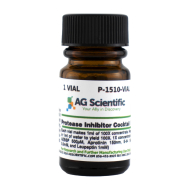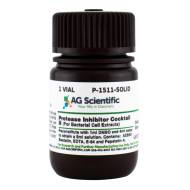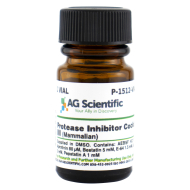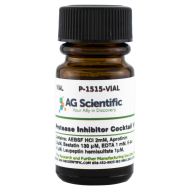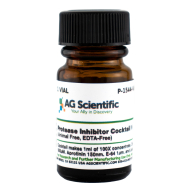HIV relies on the host cell it injects itself into to continue the cycle. By implicating road blocks in this process through protease inhibitors, there is a possibility of halting the replication and spread of the HIV virus.
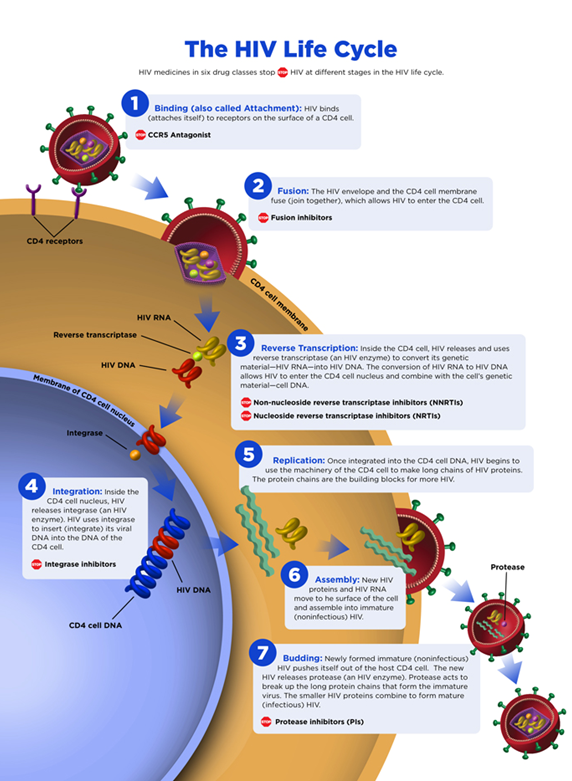
7 Steps of the HIV Life Cycle
The first step of the HIV cycle is binding, when the virus first attaches to a cell with the CD4 surface protein. The next step is fusion, where the HIV envelope and CD4 protein merge together. HIV it injects its genetic information into the cell so that it can use the cell's machinery to make its RNA into DNA in the next step, reverse transcription.HIV then inserts its DNA into the host cell DNA code through the enzyme integrase in the integration step. The host cell then replicates HIV's DNA which produces chains of HIV's proteins. This new protein chain and new HIV RNA move to the cell surface and assemble themselves into immature or noninfectious HIV.
At the cell surface, it begins to bud off to spread its proteins and RNA to other cells. These new HIV buds release protease, which break apart these newly-made protein chains into the mature and infectious form of HIV, which is where protease inhibitors can come in handy in stopping this process.
How to stop the replication cycle?
There are 6 drug classes available to treat HIV through the interruption of the HIV cycle. They include the nucleoside reverse transcriptase inhibitors (NRTIs), non-nucleoside reverse transcriptase inhibitors (NNRTIs), protease inhibitors (PIs), fusion and entry inhibitors, pharmacokinetic enhancers, and integrase strand transfer inhibitors (INSTIs).
The Protease Inhibitor class of drugs affects the last step of the cycle, hindering the maturation of the virus by not breaking up the protein chains into its infectious form. Interrupting this last step can potentially stop the virus' replication.
Learn more about using protease inhibitors against viruses here.
FDA-Approved Protease HIV Medicines
| Protease inhibitors that block HIV protease | |||
| Atazanavir (atazanavir sulfate, ATV) | Reyataz | June 20, 2003 | |
| Darunavir (darunavir ethanolate, DRV) | Prezista | June 23, 2006 | |
| Fosamprenavir (fosamprenavir calcium, FOS-APV, FPV) | Lexiva | October 20, 2003 | |
| Indinavir (indinavir sulfate, IDV) | Crixivan | March 13, 1996 | |
| Nelfinavir (nelfinavir mesylate, NFV) | Viracept | March 14, 1997 | |
| Ritonavir (RTV) | Norvir | March 1, 1996 | |
| Saquinavir (saquinavir mesylate, SQV) | Invirase | December 6, 1995 | |
| Tipranavir (TPV) | Aptivus | June 22, 2005 | |
Additional Reading
- Protease Inhibitors: Killing Viral Replication
- Protease Inhibitors for COVID-19 Rapid Testing
- Amphotericin B for Viral Disease Research
